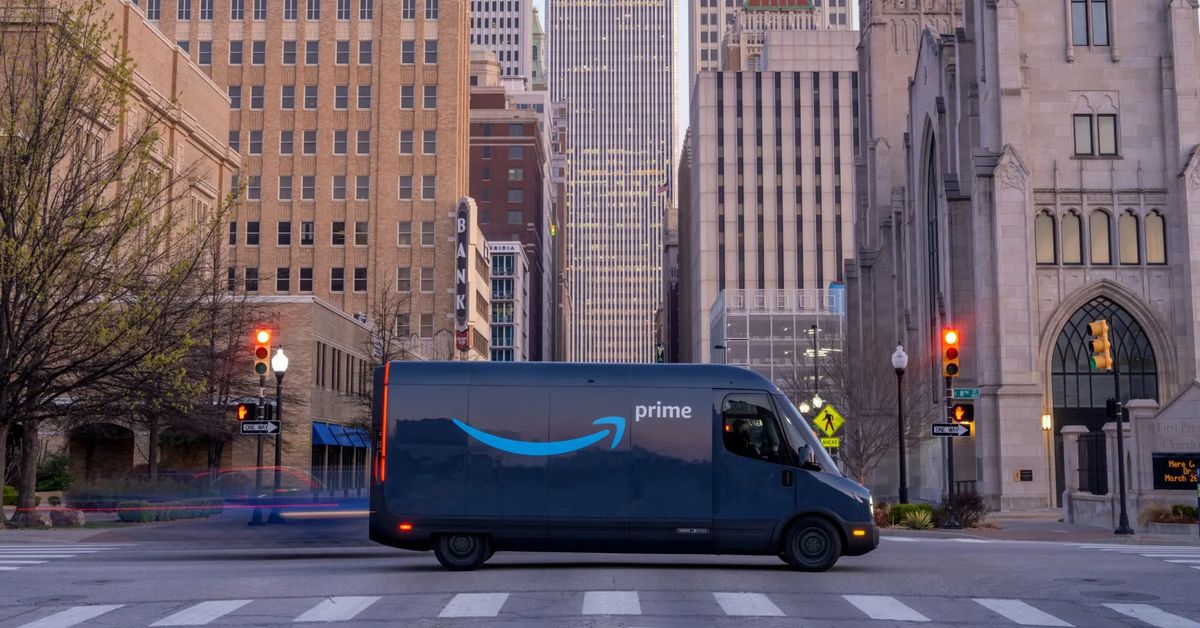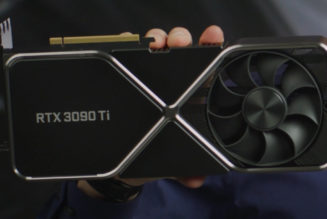
Rivian says it will start taking orders for its electric delivery vans in 2022 and will deliver them to fleet customers in “early 2023,” calling into question the status of Amazon’s exclusive rights to the vehicle.
The buzzy EV startup — which is slated to go public this week at a valuation of $50 billion or higher — quietly announced the details about its fleet sales plans in a new section of its website that went live Friday afternoon. It also said it will sell fleet versions of its R1T electric pickup truck and R1S electric SUV, meaning it will compete with Ford’s commercial version of the F-150 Lightning, as well as a fleet management platform called FleetOS and a charging infrastructure solution.
Selling electric delivery vans to commercial fleet customers other than Amazon could help Rivian make a lot more money in the near term, as the market for these vehicles is still wide open. But the startup runs the risk of biting off more than it can chew. Rivian’s ability to make vehicles at scale is still unproven; it has only just started making and delivering the R1T and is still preparing the delivery van for mass production.
The fleet section of Rivian’s website was launched just one day after the company was sued by a former VP for alleged gender discrimination; among other things, she claimed Rivian had manufacturing quality problems and too-lofty delivery targets.
Amazon and Rivian announced that they were collaborating on an electric delivery van in 2019. The conglomerate said it would order up to 100,000 vans through 2024, part of the effort to decarbonize its logistics fleet. Amazon recently confirmed it owns some 20 percent of Rivian after participating in multiple funding rounds before the IPO.
When Rivian announced its plan to go public earlier this year, it shared further details about the deal with Amazon in filings with the Securities and Exchange Commission. The two companies agreed that Amazon would have exclusive rights to the delivery van for four years after Rivian provided the first batch. Amazon would also have the right of first refusal for two years after that over any other companies that wanted to buy the vans from Rivian.
As a result, Rivian confessed to prospective investors that a “significant portion” of its “near-term” revenue would come from Amazon. And some were listening. “The exclusivity clause of this agreement may significantly hamper Rivian’s ability to capture market share,” equity research firm New Constructs wrote in a report last week.
Neither company would explain the current status of Amazon’s exclusive rights to Rivian’s van, though. The new section of Rivian’s site, which was tweeted by communications director Amy Mast, says customers will be able to use an “online fleet configurator to plan and place your fleet order” in “early 2022,” and that “[d]eliveries of the [van] are scheduled to begin in early 2023.” Mast declined to comment, citing the SEC’s mandatory quiet period in the run-up to a public offering. Amazon also declined to comment when asked about the status of the exclusivity period.
There are a few provisions in the agreement with Amazon that could void the exclusivity period, though they don’t seem applicable yet. If Amazon doesn’t order 10,000 of Rivian’s vans in each of the two years after they go into production, it would have to reimburse the startup for certain costs and the exclusivity period would be voided. Same goes if Amazon terminates its agreement with Rivian before ordering all 100,000 vans.
Rivian still touts the deal with Amazon on the new fleet page, too. “To meet the demands of the largest retail seller in the United States, Rivian created vehicles and infrastructures to increase safety and efficiency while improving total cost of ownership,” the company writes. “Rivian plans to deliver 100,000 Electric Delivery Vans to Amazon to help Amazon take a significant step toward achieving its ambitious goals for the planet.” The startup confirms it still plans to deliver the first 10 delivery vans to Amazon by the end of 2021.
There could be a semantic explanation for all of this. Rivian and Amazon’s exclusive agreement is in reference to “last mile delivery vehicles,” which the companies obtusely define as “any electric vehicles and other delivery carriers and systems designed or produced for use in a fleet for logistics or last mile transportation of goods to the final delivery destination.”
Rivian’s new fleet site, however, refers to the van more broadly as a “commercial vehicle.” So it may be that Rivian is starting to detail efforts to sell vans to companies that aren’t in the delivery business, and that the exclusivity is more about keeping Rivian’s vans away from Amazon’s direct competition. (Though, FedEx has been working with General Motors’ commercial EV effort, BrightDrop, and UPS invested in Arrival.) Whatever is happening, it appears that Rivian’s deal with Amazon is not as prohibitive as it initially seemed — and something the company will likely share more about after it goes public this week.









